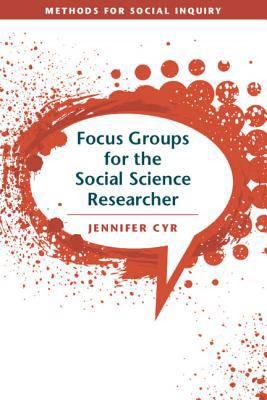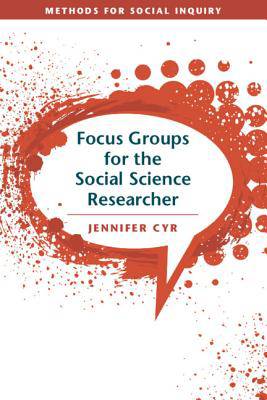
- Afhalen na 1 uur in een winkel met voorraad
- Gratis thuislevering in België vanaf € 30
- Ruim aanbod met 7 miljoen producten
- Afhalen na 1 uur in een winkel met voorraad
- Gratis thuislevering in België vanaf € 30
- Ruim aanbod met 7 miljoen producten
Zoeken
Omschrijving
What is a focus group? Why do we use them? When should we use them? When should we not? Focus Groups for the Social Science Researcher provides a step-by-step guide to undertaking focus groups, whether as a stand-alone method or alongside other qualitative or quantitative methods. It recognizes the challenges that focus groups encounter and provides tips to address them. The book highlights three unique, inter-related characteristics of focus groups. First, they are inherently social in form. Second, the data emerge organically through conversation; they are emic in nature. Finally, focus groups generate data at three levels of analysis: the individual, group, and interactive level. The book builds from these three characteristics to explain when focus groups can usefully be employed in different research designs. This is an essential text for students and researchers looking for a concise and accessible introduction to this important approach to data collection.
Specificaties
Betrokkenen
- Auteur(s):
- Uitgeverij:
Inhoud
- Aantal bladzijden:
- 144
- Taal:
- Engels
- Reeks:
Eigenschappen
- Productcode (EAN):
- 9781316638798
- Verschijningsdatum:
- 28/03/2019
- Uitvoering:
- Paperback
- Formaat:
- Trade paperback (VS)
- Afmetingen:
- 152 mm x 226 mm
- Gewicht:
- 226 g

Alleen bij Standaard Boekhandel
+ 95 punten op je klantenkaart van Standaard Boekhandel
Beoordelingen
We publiceren alleen reviews die voldoen aan de voorwaarden voor reviews. Bekijk onze voorwaarden voor reviews.







